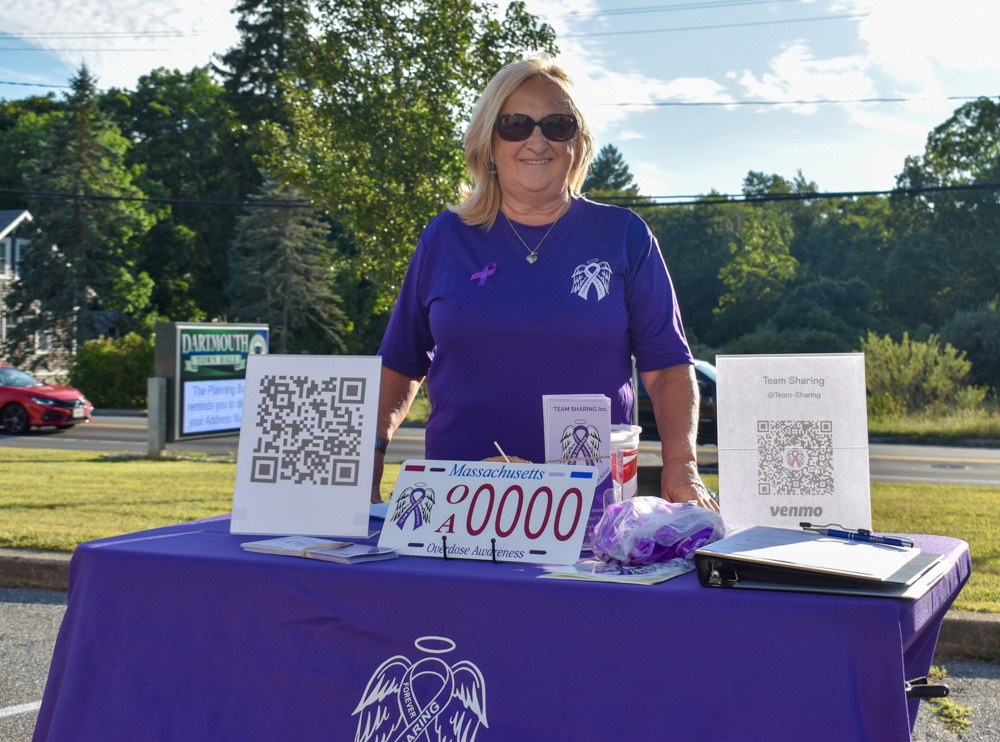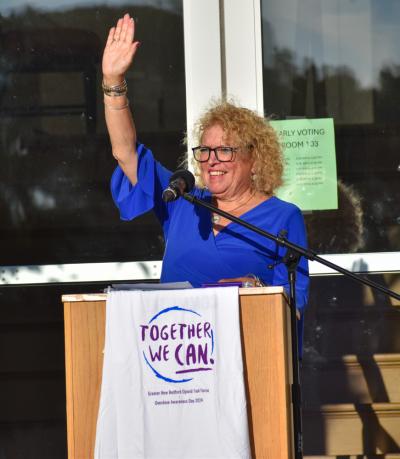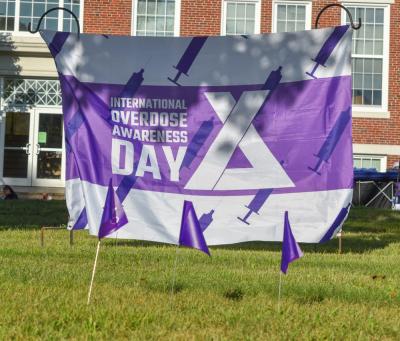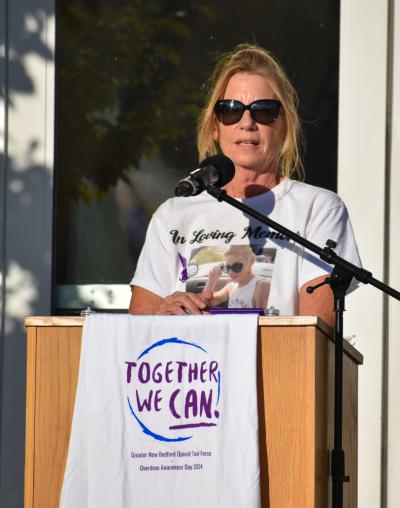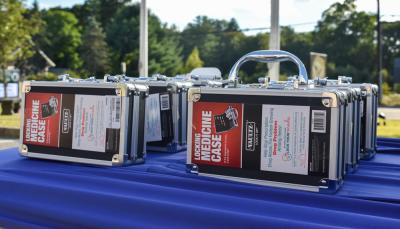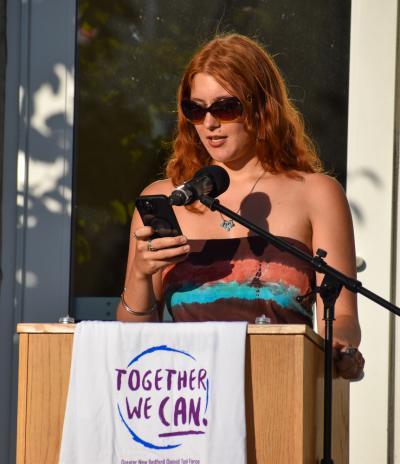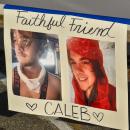‘Together we can’: As the opioid crisis worsens, community looks to each other
To Sarah Bethoney, her brother Caleb was the embodiment of summer transitioning into fall, with the warmth of the sun and the spirited regrowth of autumn.
On the other hand, her brother Max was “fierce” and “overflowing with love,” which he shared with all of those around him.
“Having to grow up as a child, watching Caleb slip further into addiction, was the equivalent of him fading from fall to a harsh bare winter,” Bethoney said.
“I think Maxy poured the love into others that he craved so badly and I really hope he felt it come full circle toward the end,” she said.
Her family lost Caleb approximately seven years ago and Max just last year to overdose.
“There’s a haunting silence between my sister and I that screams, ‘We are the only two left,’” Bethoney said at Dartmouth’s Overdose Awareness vigil Thursday, Aug. 29.
She highlighted the shame felt by those suffering from addiction and the helplessness felt by their loved ones.
In order to make progress toward healing, everyone needs to work together, she said.
“As a family unit, you have to give forgiveness with grace,” Bethoney added. “You must have open arms, open doors and open hearts.”
“Together We Can” was the theme of this year’s event. Heidi Silva Brooks, chair of the Dartmouth Advocates for Addiction, Treatment and Recovery and Select Board member, said, “While a lofty goal, it is true. Only working together will we eradicate the impacts of substance use disorder as well as the impacts of recreational drug use.”
Aileen Lovejoy, with Team Sharing, an online grief support group for parents who have lost a child to overdose, spoke about the vanity plates the group is selling with its Overdose Awareness logo.
She said Team Sharing needs 750 commitments to get the plate made, with 200 left to go.
Lovejoy shared that she lost her son 11 years ago on Mother’s Day just three hours after speaking to him.
“There’s no good way to die, but that was especially difficult,” she said. However, she said turned her “pain into passion” and even started her own support group in the Worcester area.
Joanne Peterson, founder of Learn to Cope, a peer led support group for families and loved ones of those suffering from substance abuse disorder, which began as a small group of parents meeting on a porch 20 years ago and has grown into a nationally recognized movement, also spoke at the event.
Peterson said she’s looking back at “two decades of loss,” with each one just as “shocking” and “devastating” as the last, including her niece who passed in 2018 to overdose.
Peterson’s sister had also struggled with substance abuse disorder, leaving her niece to grow up without a mom “and then she finally started to use the opioids I always feared she would.”
She said Massachusetts is fortunate enough to have more resources than other states and Learn to Cope continues to expand, with virtual Spanish-speaking groups seeing a rise in participation after the Covid pandemic. Additionally, there are grief group options through the organization and Peterson is working on doing more for children of parents, who have been lost to overdose.
Peterson recalls back in 2007, joining a group of parents in Virginia to testify against one of the pharmaceutical companies and how the problem has only gotten worse.
The town now has approximately $931,838.04 in settlement money as a result of the state’s multi-billion-dollar resolution with some of the nation’s largest drug distributors, which Peterson encouraged everyone to get involved with to combat the opioid crisis.
She said those who show up, those who speak up and all the organizations contributing to this effort without stigma are the real difference in making change happen.
In the last two decades of loss, Peterson said the issues may have become worse and more complicated, but “the difference between today and 20 years ago is this — what you see tonight.”



